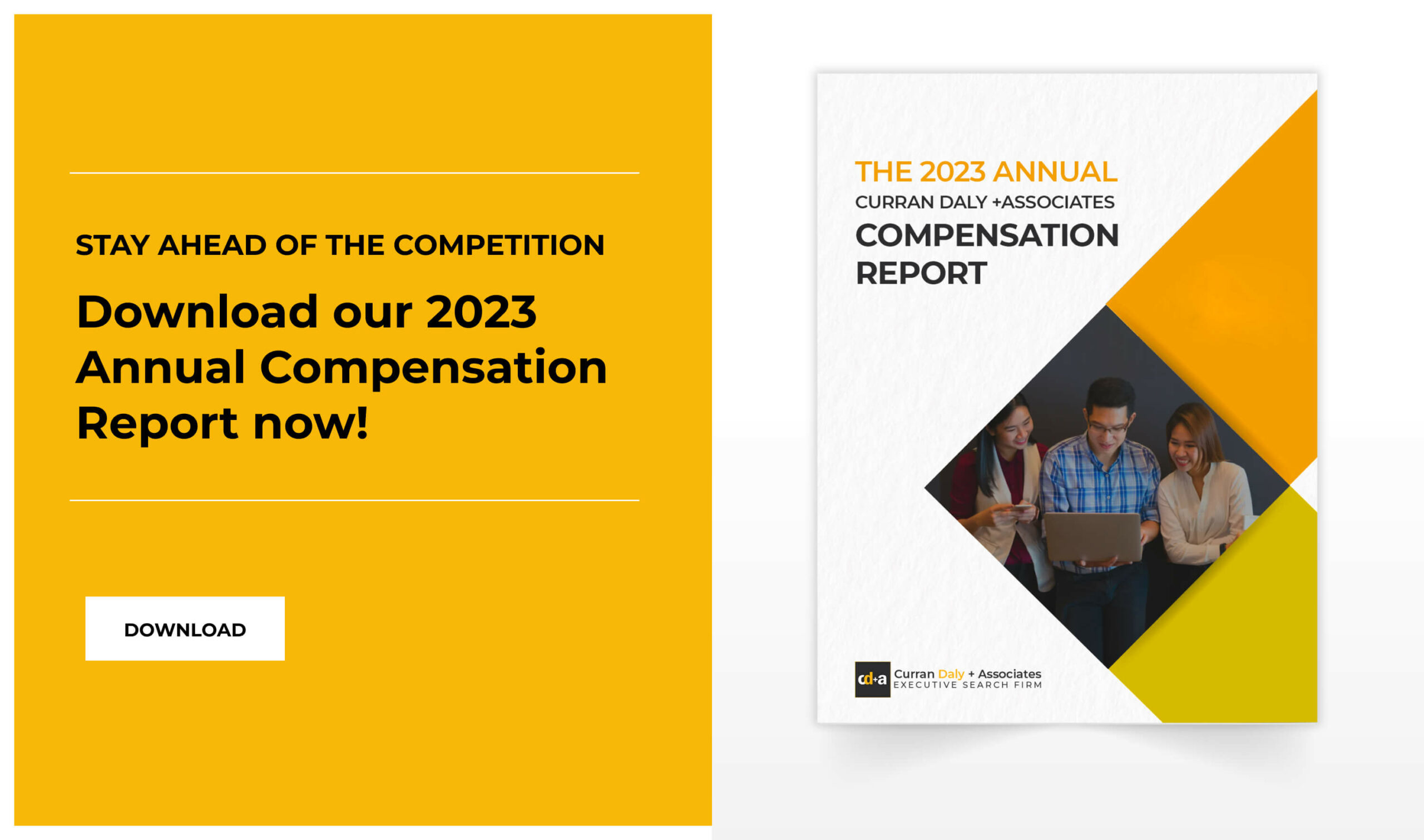Recruitment companies remain to be both practical and worthwhile choices for organizations who want to expand their operations.
Clients acquire additional human resources to complete tasks related to recruitment, HR, and accounting, for example. Tight schedules and the large number of workloads sometimes get in the way of the recruitment processes.
Yet, a recruitment firm is going to be a long-term professional partner much more than it will be an order taker. Through several business decisions, an effective staffing partner will learn about your business culture and what your hiring managers are looking for.
As this partnership expands, making the most out of this developing relationship will lead to immense growth and benefits in the long term.
What is Executive Search?
Executive search is a type of recruitment specialized to attract high-skilled senior management talent to an organization. Contrary to other staffing agencies, headhunters look for the best executives fit for their client’s business.
“Companies need the best candidates to fill an open position, not just warm bodies,” says Jacque Myers. She is the senior engineering recruiter of The Daniel Group.
“When we have the opportunity to develop a partnership with a client, we can understand their challenges and help them resolve these issues with one of our hiring solutions,” she adds.
For example, in Curran Daly + Associates, a face-to-face brief with decision-makers to understand a client’s culture and environment is set. Studies and background checks are conducted before anything else. This way, expectations are managed, and companies are well-represented.
The process is a research-led approach. It means that search firms are paid retainer fees to do extensive market mapping. An analysis of the marketplace and benchmarking of roles and salaries can be conducted.
Curran Daly + Associates’ Executive Search Services is one of the market leading services. It recruits the following roles: CEOs and other C-level executives, Vice President, Directors, Principals, and other managerial roles in the Philippines. Here is our Executive Search Process.
-
-
- Planning
- We study your organization.
- We establish expectations and a communication plan.
- We develop position specifications.
- We formulate the search strategy, and have it approved by you.
- Discovery
- We research and identify target environments.
- We identify and recruit prospective candidates.
- We conduct evaluation interviews.
- We show you a progress report before proceeding.
- Assessment
- We do benchmarking and present qualifying candidates afterwards.
- We ask you to choose from our short list.
- We conduct reference checks.
- You choose successful candidates and conduct interviews with them.
- Hiring
- We assist in structuring an offer and in conducting negotiations.
- You seal the deal with your choice candidates.
- We conduct regular follow-ups in succeeding months after the placement.
- Planning
-
What are the Benefits of a Strong Relationship with Executive Search Firms?
No matter the industry, relationship building is key to success in the long term.
As a company that specializes in executive headhunting, CDA knows the value and importance of devoting enough attention and efforts to this important business activity.
Nurturing partners’ needs goes a long way to forge strong relationships. Here are some of the main benefits of having long-term business relationships.
Benefit #1. The right reputation gains the trust and confidence of potential and new business partners.
Loyalty goes without saying. You are well on the road to good relationship building if you spend time and effort in getting to know your customers, listening to their needs and supporting them to the best of your abilities. Providing a great service would promote repeat business, building a loyal client base. Once you’ve got the right credibility, it’s easier to gain confidence and trust in the people you do business with.
Benefit #2. An established client base means reduced marketing effort and costs.
Once you concentrate on the relationship-building process, you create lifelong relationships. Having a regular, established base of customers means you don’t have to use aggressive ads to try and win new customers, which can reduce overall costs. Fostering those you have already formed relationships with can develop your business through regular use and advice to others.
Benefit #3. Strong relationships with your headhunter mean having brand advocates.
If you care for your clients properly, they are more likely to be pleased with your service, which, by reviews, improves their chances to advertise your company to others. By acting as brand advocates for your company, long-term customers are effectively doing your brand marketing for you, building your credibility and raising awareness.
Benefit #4. Businesses that nurture the needs of clients and customers are more likely to achieve success.
You will be better equipped to fully understand what they want if you take the time to get to know your customers. This would, in our case, maximize the chances of placing the right candidate with the most suitable employer, creating a successful outcome for all parties. This, in turn, will encourage repeat business and enhance your company’s profile. Conversely, businesses which fail to nurture the needs of clients and customers are far less likely to achieve success or may take much longer to secure the desired result.
Benefit #5. It will gain you competitive advantage in the long run.
The recruitment industry is stable yet competitive, particularly since the internet has radically changed the way in which this field operates. With an increasing number of businesses vying for recruits and consumers ‘ attention, any recruitment firm seeking success needs to be sure that they get a competitive advantage among their peers. Through building long-term business relationships, one of the most effective ways any company can do this. Through concentrating on the process rather than the end result, consumers will be happier and more likely to re-use your services.
Benefit #6. There will be more networking opportunities.
If you need guidance, knowledge or have a specific requirement, good customer relationships will prove beneficial. As a recruitment company, we find that a long-term client will, for example, be able to put you in contact with another business that might be looking to hire. The next time your own company looks to recruit, where you already have a strong base of network opportunities at your disposal, clients that you know well may even prove to be an asset.
Benefit #7. There will be more chances of engendering positive feedback from others.
Most consumers are reading end-user reviews and observations these days, before purchasing or using a product or service. Gleaming reviews from happy customers can go a long way to speeding your business growth. And when you develop long-term relationships, the prospects of receiving positive reviews from others are boosted.
How are Great Working Relationships Developed?
Developing strong relationships with executive headhunters can make tasks much easier. Practicing diligence in working with executive recruiters can improve your working relationships with them.
Failing at one or two points below will not instantly lead to a bad relationship. Yet, being unable to establish a long-term and strong relationship with your headhunter may lead to a ‘revolving door’ situation. This may cause frustrating hires that may affect the completion of the project.
Here are expert-approved tips that can help you move forward with a stronger partnership. Take note that executive headhunters usually talk to the hiring managers of their client company.
You should educate them about your recruiting processes as well.
Any form of successful partnership is a two-way street. For recruiters and hiring managers of a company, it is best to have an exchange of what each worldview is like.
Jill Santopietro-Panall, HR consultant and owner of 21Oak HR Consulting, says “Hiring managers are short on time and impatient to fill the role, in general…and they often expect recruiters to magically have many qualified candidates just laying around.”
Letting each other know about the process would greatly help manage expectations. This includes the how long processes usually take. Some feedback may also help especially if they are subject-matter experts.
You should espouse transparency and check-in with them regularly.
Hiring managers who do not receive regular updates from headhunters and vice versa would keep some members of the recruitment team in the dark. This matters greatly when the work done requires collaboration and constant updates to move forward.
“If [hiring managers] don’t see it happening, they tend to default to thinking nothing is happening, so do your best to avoid that perception,” says Santopietro-Panall.
In the executive search industry, headhunters are in fact looking for many passive candidates. “You’ve got to educate hiring managers on how cultivating passive candidates works, so they know time delays are not at all equal to lack of effort,” she adds.
To avoid similar misunderstandings, it is best to meet constantly. Candidates can be reviewed, and feedback can help improve all efforts to move forward.
Narrow down and simplify the job requirements they will work with.
Experts say that one of the most common obstacles to a successful relationship between recruiters and hiring managers is a very long list of requirements. Aside from the extra time needed, cramming too many requirements into one job can also be a waste of resources.
“Whether that’s because they are short on headcount or haven’t taken the time to think through what they really need, the result is a skill set that no candidate possesses. Recruiters call this a purple squirrel — it doesn’t exist,” explains Mikaela Kiner, founder and CEO of uniquelyHR.
Instead of listing too many, you can work to strip down the list down to the essentials. Everything else can come right after once the scope of the basics are established.
You should carefully decide when to escalate and bring up issues.
Most recruiters, even those who can often be difficult to work with, need a little refresher and occasional reminders. This is to correct misunderstandings and foreseen shortcomings in the hiring process. Yet, you might need to flag issues to a manager or leader every now and then.
Santopietro-Panall recommends doing so during these situations:
- When there are unmanageable expectations and they refuse to listen and adjust processes
- When there are inappropriate, harassing, rude or abrasive behaviors with you as a recruiter
- When there are discriminatory recruiting practices that your company cannot condone
Kiner suggests, however, that it is helpful to talk to your search partner first. False accusations due to assumptions may also worsen the situation. However, “if the pattern doesn’t change, considering talking to HR or management to see what kind of support or training is available”.
Lastly, get to know and ask about their needs.
Recruiters are not limited to their own field anymore. More often than not, they also need to understand the functions they are recruiting for. If they go on with their processes without this, frustration could rise.
“Hiring managers balk when they feel like recruiters don’t understand what they want and need and bridging that gap of understanding can build trust and lead to successful placements,” says Santopietro-Panall.
She highlights the importance of really understanding the business to become a great recruiting partner. She suggests that recruiters and managers should treat a project not just in the context of a specific hire.
Rather, they should “really sit down and listen and understand their business challenges overall”. She adds that instead of knowing what their ideal candidates are, it is also helpful to ask about their best employees. This way, the traits and skills that make one so great can be captured and matched with future hires.
Your Executive Search Partner Should Be a Trusted Partner
An ideal partnership includes trusting your executive search firm to find the best fit for your business.
Here at Curran Daly & Associates, you can have the full confidence. We get to know your business and aim to represent you to potential candidates in the best possible way.
Learn more about what else we do or talk to us by clicking here!
References
Dyson, J. (2019). The benefits of building long-term business relationships. Retrieved from https://fjrgroup.com/insights/the-benefits-of-building-longterm-business-relationships/
Moore, E. (2018). 6 ways to develop a great working relationship with hiring managers. Retrieved from https://www.glassdoor.com/employers/blog/relationship-hiring-managers/
Smart Business Magazines. (2012). How a strong relationship with your staffing firm can strengthen your recruiting. Retrieved from https://www.sbnonline.com/article/57764-danielgroup/









0 Comments